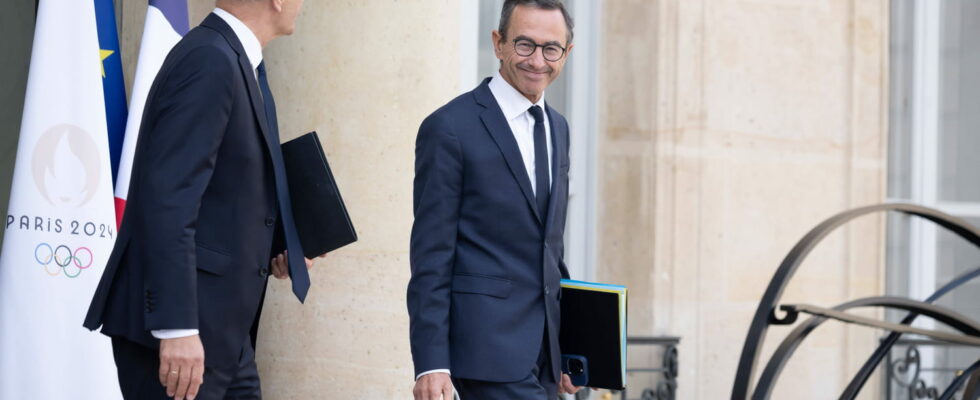The Ministers of the Interior and Justice presented their plan to combat drug trafficking this Thursday in Marseille. A project over “15, 20 years”, to overcome the “octopus” of drug trafficking, according to Bruno Retailleau.
The Ministers of the Interior Bruno Retailleau and of Justice Didier Migaud presented this Thursday, November 8 in Marseille, the main points of the government plan to fight crime during a press conference. The choice of the Marseille city for the announcement of these measures aimed at combating drug banditry is not insignificant, as it has become the scene of a bloody war between gangs.
Next on the agenda for the two ministers is a first visit to the Bouches-du-Rhône prefecture to meet associations and families of victims of assassinations linked to drug trafficking. Subsequently, Bruno Retailleau will meet police personnel from the northern districts of Marseille while Didier Migaud will take charge of the Beaumettes prison, before joining the Marseille judicial court for discussions withthe heads of court and jurisdiction as well as the staff of the Specialized Inter-regional Jurisdiction.
Bruno Retailleau promises a “very firm response from the State”
After several shootings in Marseille, Bruno Retailleau indicated that France found itself at a “tipping point” in the face of drug trafficking, under the threat of “Mexicanization”, in reference to the tense situation on the border between the United States. and Mexico. A term deemed “excessive” by Bertrand Monnet, researcher specializing in the economics of crime, in the columns of France Info. “In Mexico, we fall under bombs for nothing. In France, it is a red line, which pushes politicians to take up the subject (…) The situation is much more worrying in Mexico”, estimates Clotilde Champeyrache, specialist in criminal economics and author of Mafia geopoliticsstill at France Info.
For his part, the Minister of Justice says he is “totally in tune” with his Interior counterpart. As a reminder, the turnover from drug trafficking is estimated between 3.5 and 6 billion euros per year in France. A “very firm response from the State” is planned, affirmed Bruno Retailleau. Here are the main measures revealed by the two ministers.
Increase in staff numbers and creation of a national coordination unit
Didier Migaud first announced that he would consider judging “organized gang crimes” linked to narcotics by special assize courts, with professional magistrates as for terrorism cases. A novelty which would “remove the risk of pressure exerted on the jurors with a view to guiding the final judicial decision”, assured the Minister of Justice. Following the Italian model, Didier Migaud also wants to improve the protection regime for repentants so that drug traffickers who wish to repent are exempted from penalties or sentenced to less severe sanctions.
New means will be deployed with the creation in the coming weeks of a “national coordination cell”, making it possible to work from the inventory of a threat, to the implementation of the strategy on the ground. In this sense, the teams of the Paris prosecutor’s office working on the fight against organized crime could be strengthened by 40%. Five new judge positions will also be created.
Relaxation of the minority excuse for those under 16
Another flagship measure announced by the Retailleau-Migaud duo: the relaxation of the minority excuse. In other words, relax this excuse for those under 16 “in the most serious cases”, explains the Minister of Justice. Dealers will also see, in the future, their tax assets attacked. “Hitting the wallet” is Bruno Retailleau’s objective: “We must scan the entire heritage and freeze the assets. It’s fundamental,” he assures. The opening of an asset investigation in drug cases could even become compulsory. The tenant of Place Beauvau also intends to strengthen the application of fines, whether for the purchase or consumption of narcotics.
Bruno Retailleau also wants a “ban on appearing on and around the deal points” of a trafficker once he has been identified by the courts. Finally, greater “mobilization” at the European and international level was called for by Didier Migaud to strengthen the tools of the fight outside French borders. A new liaison magistrate will be installed in Bogota (Colombia) and a fourth magistrate will take up his duties at European level.
